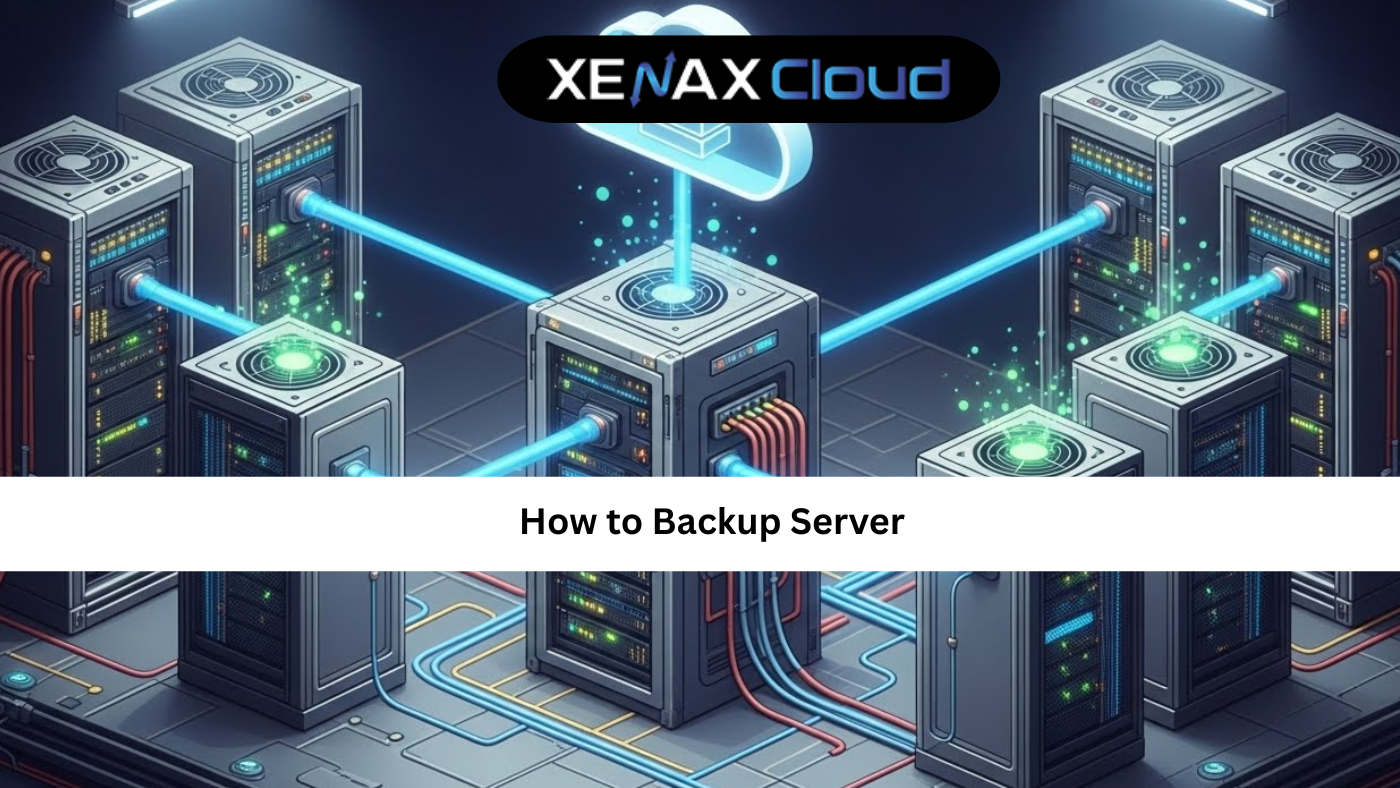In India’s rapidly growing digital landscape, businesses demand hosting solutions that ensure high availability, scalability, and performance. A cluster server provides redundancy and load balancing to keep applications running smoothly. XenaxCloud, with its India-based data center, offers robust server clustering solutions through its Dedicated Servers, complemented by VPS Server, Shared Hosting, Indian RDP, Domains, and Reseller Hosting. This comprehensive guide explores cluster server, server clustering, and cluster hosting, and why XenaxCloud’s VPS Server is a cost-effective complement for web hosting India with a 99.5% uptime guarantee.
What Is a Cluster Server?
A cluster server is a group of servers working together as a single system to provide high availability, load balancing, and fault tolerance. Key features include:
- High Availability: Ensures applications remain online during server failures.
- Load Balancing: Distributes traffic across servers for optimal performance.
- Scalability: Easily add servers to handle increased demand.
- Redundancy: Minimizes downtime with backup servers.
XenaxCloud’s Dedicated Servers are ideal for cluster hosting, while VPS Server offers affordable scalability for smaller clusters.
Why Choose Cluster Hosting in India?
- High Availability: Ensures zero downtime for critical applications.
- Low Latency: India-based servers for faster response times.
- Scalability: Adjust resources for growing workloads.
- Security: Free SSL and DDoS protection.
- Compliance: Meets India’s data regulations.
XenaxCloud’s Dedicated Servers and VPS Server are optimized for server clustering in India.
Web Hosting India: Cost Breakdown
When planning cluster hosting, consider these options:
- Shared Hosting: ₹100–₹500/month, for small websites.
- VPS Hosting: ₹1000–₹5000/month, scalable for small clusters.
- Dedicated Servers: ₹5000–₹20,000/month, for robust cluster server setups.
- Reseller Hosting: ₹1000–₹5000/month, for hosting businesses.
XenaxCloud’s VPS Server starts at ₹1000/month, complementing server clustering with cost-effective hosting.
How to Set Up a Cluster Server with XenaxCloud
Follow these steps to deploy a cluster server using XenaxCloud’s Dedicated Servers or VPS Server.
Step 1: Choose XenaxCloud’s Hosting Plan
XenaxCloud’s Dedicated Servers include:
- Basic Dedicated: ₹5000/month, 4-core CPU, 16 GB RAM, 1 TB SSD.
- Pro Dedicated: ₹10,000/month, 8-core CPU, 32 GB RAM, 2 TB SSD.
- Enterprise Dedicated: ₹20,000/month, 16-core CPU, 64 GB RAM, 4 TB SSD.
For smaller clusters, choose VPS Server:
- Starter VPS: ₹1000/month, 2 GB RAM, 50 GB SSD.
- Pro VPS: ₹3000/month, 4 GB RAM, 100 GB SSD.
- Enterprise VPS: ₹5000/month, 8 GB RAM, 200 GB SSD.
Step 2: Register a Domain
- Choose a Domain: Secure a .in domain via Domains (₹500–₹2000/year) for local SEO.
- Configure DNS: Point to XenaxCloud’s name servers or cluster IP.
- Verify Resolution: Ensure your domain connects to your Dedicated Servers or VPS Server.
Step 3: Set Up Your Cluster Server
- Choose an OS: Select Ubuntu or CentOS for cluster hosting on Dedicated Servers or VPS Server.
- Access Servers:
- Use Indian RDP for GUI management.
- Connect via SSH:
ssh user@your-server-ip
- Update System:
sudo apt update && sudo apt upgrade -y # For Ubuntu sudo yum update -y # For CentOS
Step 4: Install Clustering Software
- Install Kubernetes (K8s):
- Install
kubeadm,kubectl, andkubelet:sudo apt install -y apt-transport-https ca-certificates curl curl -fsSL https://packages.cloud.google.com/apt/doc/apt-key.gpg | sudo apt-key add - echo "deb https://apt.kubernetes.io/ kubernetes-xenial main" | sudo tee /etc/apt/sources.list.d/kubernetes.list sudo apt update sudo apt install -y kubeadm kubectl kubelet
- Install
- Initialize Master Node:
- On the master server:
sudo kubeadm init --pod-network-cidr=10.244.0.0/16 - Copy the
kubeadm joincommand for worker nodes.
- On the master server:
- Join Worker Nodes:
- On each worker server, run the
kubeadm joincommand from the master.
- On each worker server, run the
- Install Network Plugin (Flannel):
kubectl apply -f https://raw.githubusercontent.com/coreos/flannel/master/Documentation/kube-flannel.yml - Verify Cluster:
kubectl get nodes
Step 5: Deploy a Sample Application
- Create a Deployment:
- Create
nginx-deployment.yaml:apiVersion: apps/v1 kind: Deployment metadata: name: nginx-deployment spec: replicas: 3 selector: matchLabels: app: nginx template: metadata: labels: app: nginx spec: containers: - name: nginx image: nginx:latest ports: - containerPort: 80 - Apply:
kubectl apply -f nginx-deployment.yaml
- Create
- Expose Deployment:
- Create a service:
kubectl expose deployment nginx-deployment --type=LoadBalancer --port=80
- Create a service:
- Verify Application:
kubectl get services- Access via the external IP or domain.
Step 6: Configure Load Balancer
- Install HAProxy:
- On a dedicated load balancer server:
sudo apt install haproxy -y
- On a dedicated load balancer server:
- Configure HAProxy:
- Edit
/etc/haproxy/haproxy.cfg:frontend http_front bind *:80 mode http default_backend http_back backend http_back mode http balance roundrobin server server1 <worker1-ip>:80 check server server2 <worker2-ip>:80 check server server3 <worker3-ip>:80 check - Replace
<worker1-ip>,<worker2-ip>, etc., with your worker node IPs.
- Edit
- Restart HAProxy:
sudo systemctl restart haproxy
Step 7: Enable SSL for Security
- Install Certbot:
sudo apt install certbot python3-certbot-nginx -y - Obtain SSL Certificate:
sudo certbot --nginx -d yourdomain.com -d www.yourdomain.com - Use XenaxCloud’s Free SSL:
- Available with Dedicated Servers or VPS Server via cPanel or Plesk.
- Install via control panel for quick setup.
- Verify HTTPS:
- Visit
https://yourdomain.comto confirm secure access.
- Visit
Step 8: Monitor and Optimize
- Monitor Performance:
- Install
htopandkubectl:sudo apt install htop -y
- Install
- Monitor Cluster:
kubectl get pods --all-namespaces - Set Up Backups:
- Use XenaxCloud’s automated backup tools.
- Ensure Uptime: XenaxCloud’s 99.5% uptime ensures reliable cluster hosting.
Step 9: Secure Your Cluster
- Enable Firewall:
sudo ufw allow 22 sudo ufw allow 80 sudo ufw allow 443 sudo ufw allow 6443 # Kubernetes API sudo ufw enable - Secure SSH:
- Use SSH keys:
ssh-keygen -t rsa ssh-copy-id user@your-server-ip - Disable root login:
sudo nano /etc/ssh/sshd_config # Set: PermitRootLogin no sudo systemctl restart sshd
- Use SSH keys:
Step 10: Scale as Needed
- Add more nodes to your cluster server via Dedicated Servers.
- Use VPS Server for cost-effective cluster nodes.
- Offer hosting to clients via Reseller Hosting.
Why Choose XenaxCloud for Cluster Server?
XenaxCloud’s Dedicated Servers are ideal for cluster server:
- High Availability: Robust server clustering for zero downtime.
- India-Based Servers: Low latency for Indian users.
- Scalable VPS: VPS Server starts at ₹1000/month.
- Free SSL Certificates: Secures your cluster.
- 99.5% Uptime: Reliable for critical applications.
- 24/7 Support: Expert assistance in Hindi, English, and other Indian languages.
XenaxCloud’s VPS Server complements cluster hosting for smaller-scale deployments.
Comparison with Other Hosting Types
- Shared Hosting: Budget-friendly for small sites, not suitable for clusters.
- VPS Hosting: Scalable for small cluster server setups.
- Dedicated Servers: High-performance for robust server clustering.
- Reseller Hosting: For reselling hosting services.
XenaxCloud’s VPS Server offers flexibility for cluster hosting.
Benefits of XenaxCloud’s India-Based Hosting
XenaxCloud’s India-based data center enhances cluster server:
- Low Latency: Fast performance for Indian users, boosting UX.
- Data Compliance: Adheres to India’s regulations.
- Local Support: 24/7 assistance in multiple Indian languages.
- Affordable Pricing: VPS from ₹1000/month, dedicated servers from ₹5000/month.
- Security: Free SSL and DDoS protection.
Additional XenaxCloud Services
- Shared Hosting: Ideal for small sites, starting at ₹100/month.
- Indian RDP: Securely manage cluster server setups.
- VPS Server: Scalable hosting for cluster nodes.
- Domains: Affordable .in domains for local branding.
- Reseller Hosting: Start a hosting business with ease.
Tips to Optimize Your Cluster Server
- Choose the Right Plan: Start with VPS Server and upgrade to Dedicated Servers for larger clusters.
- Optimize Performance: Use load balancing and caching.
- Secure Your Cluster: Enable firewalls and SSL.
- Automate Backups: Protect data with XenaxCloud’s tools.
- Leverage RDP: Use Indian RDP for secure management.
Common Use Cases
- Enterprises: Run high-availability apps on Dedicated Servers with server clustering.
- Developers: Test clusters on VPS Server.
- E-Commerce: Ensure uptime with cluster hosting.
- Hosting Providers: Offer services via Reseller Hosting.

FAQs
- What is a cluster server?
A cluster server is a group of servers working together for high availability. XenaxCloud’s Dedicated Servers support server clustering. - Why choose XenaxCloud for cluster hosting?
XenaxCloud’s Dedicated Servers offer cluster hosting with India-based servers and 99.5% uptime. - How do I set up server clustering with XenaxCloud?
Use Dedicated Servers or VPS Server with Kubernetes or HAProxy. - What are the benefits of Indian server hosting?
Indian server hosting ensures low latency, data compliance, and local support for Indian users. - Can I manage my cluster remotely with XenaxCloud?
Yes, use Indian RDP for secure cluster server management. - Is XenaxCloud’s hosting secure?
Yes, it includes free SSL, firewalls, and DDoS protection for secure server clustering.
Conclusion
Deploying a cluster server with XenaxCloud’s Dedicated Servers ensures high availability and performance for critical applications. With India-based servers, 99.5% uptime, and affordable cluster hosting, XenaxCloud is the top choice for Indian businesses. Complement with VPS Server for cost-effective scalability, alongside Shared Hosting, Indian RDP, Domains, and Reseller Hosting. Start your server clustering journey with XenaxCloud’s Dedicated Servers or VPS Server today at XenaxCloud.com!






